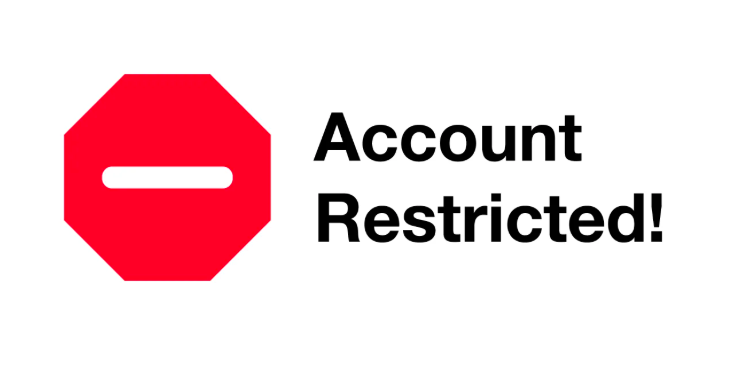(And Why You Might Not Get It Back)
If your business’s Facebook Page has ever been restricted, you’ll know the sinking feeling: a sudden loss of access, warnings from Meta, and a trail of confusion about what went wrong and how to fix it.
At Coffee Creative Studio, we’ve helped clients navigate everything from minor restrictions to full-on page shutdowns. So let’s break down what actually happens when a page is restricted-and what you can (and can’t) do to recover it.
What Does “Restricted” Mean?
When Facebook restricts a business page, it means your page has violated one or more of Meta’s policies-and as a result, your page may face:
- Limited visibility (not showing in search or feeds)
- Blocked ability to run ads
- Reduced distribution of content
- Complete loss of access (in severe cases)
This restriction could be temporary or permanent, depending on the reason Meta flags it.

Common Reasons Business Pages Get Restricted
Unfortunately, Facebook doesn’t always provide crystal-clear feedback. But here are some of the most common triggers:
1. Policy Violations
Posts, ads, or comments that breach Meta’s Community Standards or Ad Policies-whether intentional or not, can lead to a restriction.
2. Suspicious Activity
This could include things like:
- Sudden spikes in page activity
- Logins from unusual locations
- Unauthorized third-party access
3. Improper Ad Practices
Running ads that:
- Make misleading claims
- Don’t match the landing page content
- Involve restricted or regulated products
4. No Verified Business Details
Not setting up or verifying your business in Meta Business Suite increases your vulnerability.
The Recovery Process: What You Can (and Can’t) Do
Step 1: Check Your Account Quality
Go to Account Quality in your Meta Business Suite. This shows current restrictions, violations, and any flagged assets.
Step 2: Appeal (if eligible)
You can submit an appeal if the restriction was applied incorrectly. Be sure to:
- Explain clearly and calmly
- Reference specific policies (if applicable)
- Provide any business verification details
⚠️ Important: Not every restriction is eligible for appeal. If Meta deems the violation severe, your page may be permanently disabled-with no way to get it back.
Step 3: Verify Your Business
If you haven’t done this already, verify your domain and company in the Business Suite. It helps Meta confirm your legitimacy and is often a requirement for ad access reinstatement.
Step 4: Contact Meta Support (if available)
Businesses with ad spend history or verified status may have access to live chat support. This can speed up the resolution process.
The Harsh Truth: Sometimes You Don’t Get It Back
We’ve seen it firsthand-pages that are permanently restricted, even after multiple appeals.
Your Facebook page isn’t just a social profile; it’s a business asset. Losing it can affect:
- Your brand’s credibility
- Your advertising efforts
- Your lead generation and sales
That’s why prevention and proper setup are so important.
How to Protect Your Page Before It’s Too Late
At Coffee Creative Studio, we encourage all our clients to take proactive control of their Meta presence. Here’s how to reduce your risk of getting restricted-or worse, permanently shut down:
- Set up Meta Business Suite properly. This is your foundation for managing assets, assigning permissions, verifying your business, and accessing Meta support. If it’s not set up correctly, you’re vulnerable.
- Be in control of who has admin access to your page. Always manage roles through Business-level access in Meta Business Suite. Never hand out full admin rights without oversight-know exactly who has access and what they can do.
- All accounts that have access to your page must have two-factor authentication (2FA) enabled-always. This is non-negotiable. It drastically reduces the risk of hacks or unauthorized logins.
- Educate your team on Meta’s advertising and community standards. One misstep-even an unintentional one-can put your page at risk. Make policy awareness part of your onboarding and internal reviews.
- Avoid “grey-area” ad content. Just because something is trending or cheeky doesn’t mean Meta will approve it. Their policies are strict, and even light-hearted or “harmless” ads can trigger penalties.
- Stay alert to Meta’s official communications. Meta will never inbox you directly. All legitimate warnings or policy updates will appear in your Facebook notifications tab or your business email inbox. If someone messages you claiming to be from Facebook-it’s a scam. Don’t click, don’t reply, and definitely don’t share credentials.
A restricted Facebook page isn’t just annoying-it’s potentially devastating to your digital marketing ecosystem. If it happens to you, act fast. And if you haven’t had it happen (yet), now’s the time to put the right systems in place.
Need help reviewing your Meta setup or recovering a restricted page? Get in touch – we’ve handled dozens of cases and know what Facebook’s looking for.
Sometimes you don’t get a second chance. Let’s make sure you don’t need one.

